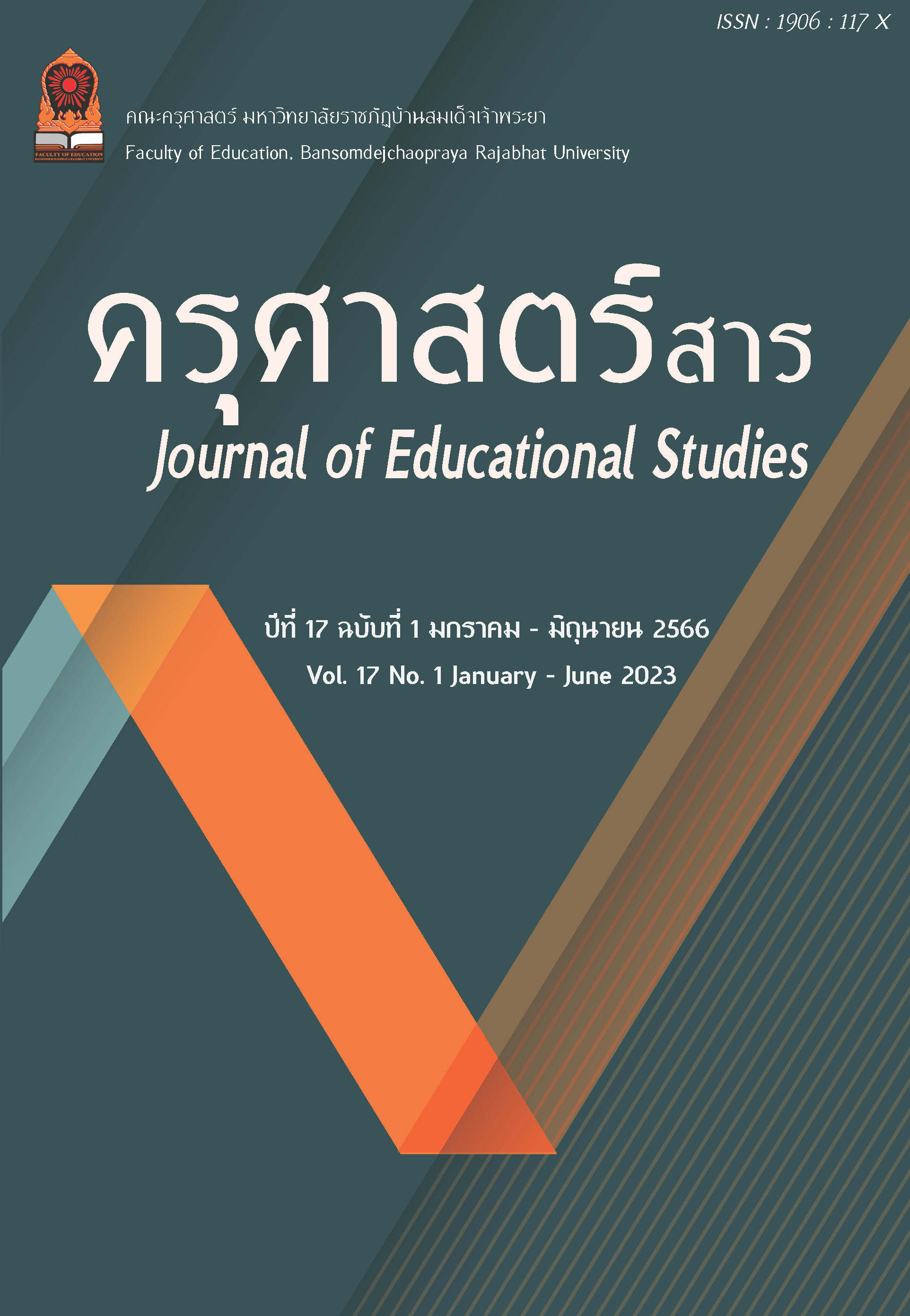Academic administration to strengthen environmentally friendly Citizenship for elementary school students.
Keywords:
Academic administration, Environmentally, CitizenshipAbstract
Academic Administration is the management that deals with the development of the curriculum of the educational institution. Conduct a course preparation. Determine the aims of the course. Implement curriculum and measure and evaluate curriculum. Teaching and learning by defining learning objectives, organizing learning activities. Measuring and evaluating learning activities Organizing student development activities Measurement and Evaluation Learning outcomes are designed, measured and evaluated. Use of a variety of measurement and evaluation instruments Using academic achievement to improve teaching and learning, and using materials and learning resources, conducting surveys and analyzing problem conditions. The need for media and learning resources Preparation and provision of teaching materials and learning resources Therefore, to develop a country's citizens into environmentally friendly citizens requires academic administration within the school. There is a group of individuals working to develop quality environmentally friendly citizens. Knowledgeable, capable, capable of critical thinking and linkage. They are concerned about the environment and encourage critical thinking and are linked to the lifestyle of the learner or the youth themselves. The concept of environmentally friendly citizenship consists of: Knowledge and understanding of the community and the environment in the community. Skilled in identifying causes Preventing and solving environmental problems Participate in community and social activities when the opportunity arises. There are concerns about the impact of the community's environmental problems. Have environmentally friendly behaviors and daily life and have the right values to treat the environment.
Downloads
References
กรมส่งเสริมคุณภาพสิ่งแวดล้อม. (2559). คู่มือแนวทางการดำเนินงานโรงเรียนอีโคสคูล. กรุงเทพฯ: กรมส่งเสริมคุณภาพสิ่งแวดล้อม กระทรวงทรัพยากรธรรมชาติและสิ่งแวดล้อม.
กระทรวงศึกษาธิการ. (2560). แนวทางการจัดการเรียนรู้ในโรงเรียนมาตรฐานสากล. กรุงเทพฯ: ชุมนุมสหกรณ์การเกษตรแห่งประเทศไทย.
ปรียาพร วงศ์อนุตรโรจน์. (2553). การบริหารงานวิชาการ. กรุงเทพฯ : ศูนย์สื่อเสริมกรุงเทพฯ
วิชัย วงษ์ใหญ่ และ มารุต พัฒผล. (2562). การถอดบทเรียนเพื่อการเปลี่ยนแปลง. กรุงเทพฯ: บัณฑิตวิทยาลัย มหาวิทยาลัยศรีนครินทรวิโรฒ.
สำนักการศึกษากรุงเทพมหานคร. (2563). แผนพัฒนาการศึกษาขั้นพื้นฐาน กรุงเทพมหานคร ฉบับที่ ๓ (พ.ศ. ๒๕๖๔ – ๒๕๖๙).กรุงเทพฯ: ส่วนนโยบายและแผนการศึกษา สำนักงานยุทธศาสตร์การศึกษา สำนักการศึกษา กรุงเทพมหานคร.
สำนักงานเลขาธิการสภาการศึกษา. (2561). แนวทางการพัฒนาสมรรถนะผู้เรียนระดับการศึกษา ขั้นพื้นฐาน. กรุงเทพฯ: บริษัท 21 เซ็นจูรี่ จำกัด.
European Network for Environmental Citizenship. (2018). New thinking in environmental citizenship. Retrieved 2021, 19 June http://enec-cost.eu/.
Gunningham, N. (2002). Leaders and Laggards: Next Generation Environmental Regulation. Canberra: Greenleaf Publishing.
Hawthorne, M., & Alabaster, T. (1999). Citizen 2000: development of a model of environmental citizenship. Global Environmental Change, 9, 25-43.
Subahan, T, & et al. (2010). Environmental citizenship: What level of knowledge, attitude, skill, and participation the students own?. Procedia Social and Behavioral Sciences, 2(2010), 5715 - 5719.
Downloads
Published
How to Cite
Issue
Section
License

This work is licensed under a Creative Commons Attribution-NonCommercial-NoDerivatives 4.0 International License.
บทความที่ได้รับการตีพิมพ์เป็นลิขสิทธิ์ของคณะครุศาสตร์ มหาวิทยาลัยราชภัฏบ้านสมเด็จเจ้าพระยา
ข้อความที่ปรากฏในบทความแต่ละเรื่องในวารสารวิชาการเล่มนี้เป็นความคิดเห็นส่วนตัวของผู้เขียนแต่ละท่านไม่เกี่ยวข้องกับมหาวิทยาลัยราชภัฏบ้านสมเด็จเจ้าพระยา และคณาจารย์ท่านอื่นๆในมหาวิทยาลัยฯ แต่อย่างใด ความรับผิดชอบองค์ประกอบทั้งหมดของบทความแต่ละเรื่องเป็นของผู้เขียนแต่ละท่าน หากมีความผิดพลาดใดๆ ผู้เขียนแต่ละท่านจะรับผิดชอบบทความของตนเอง



